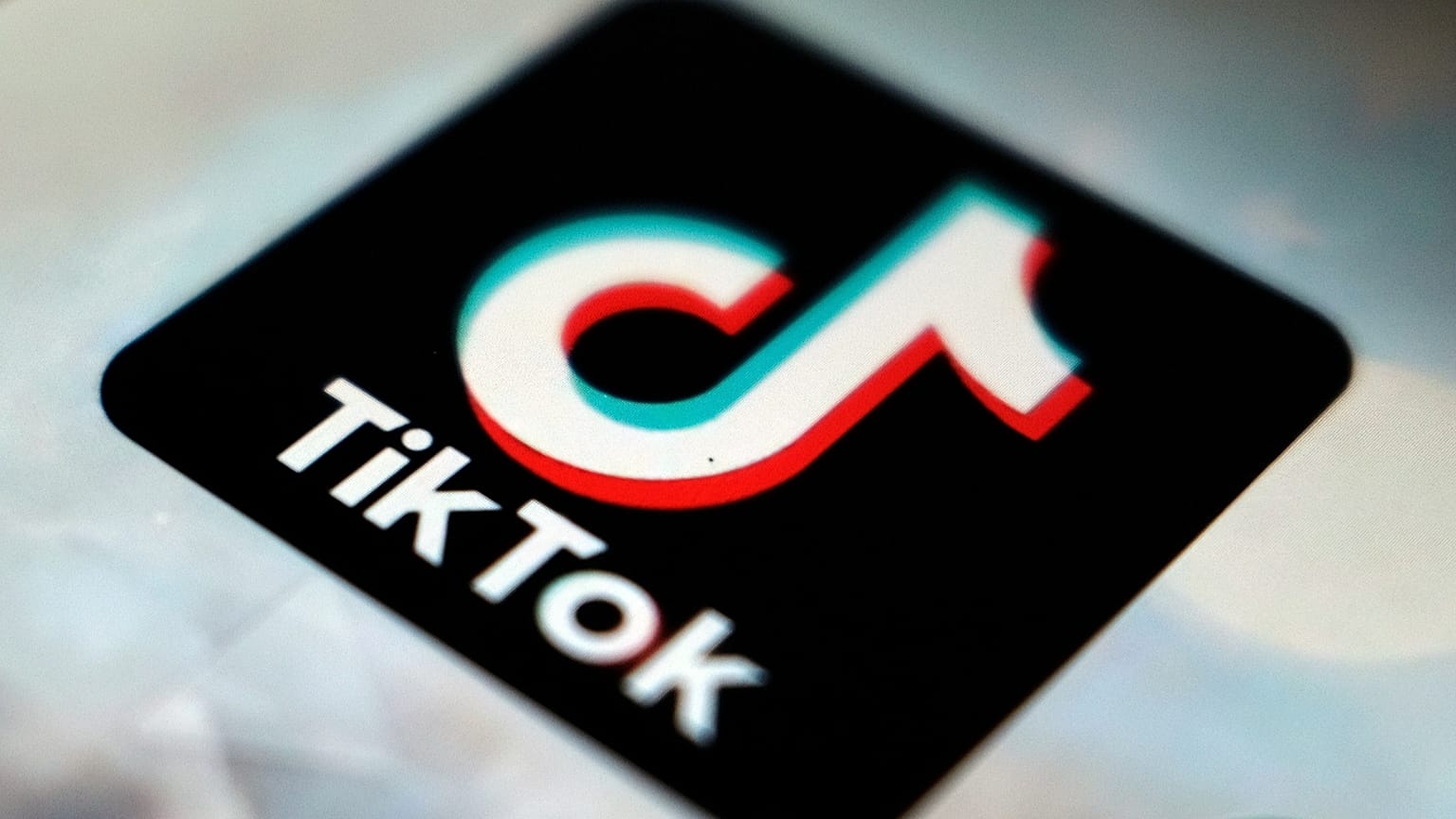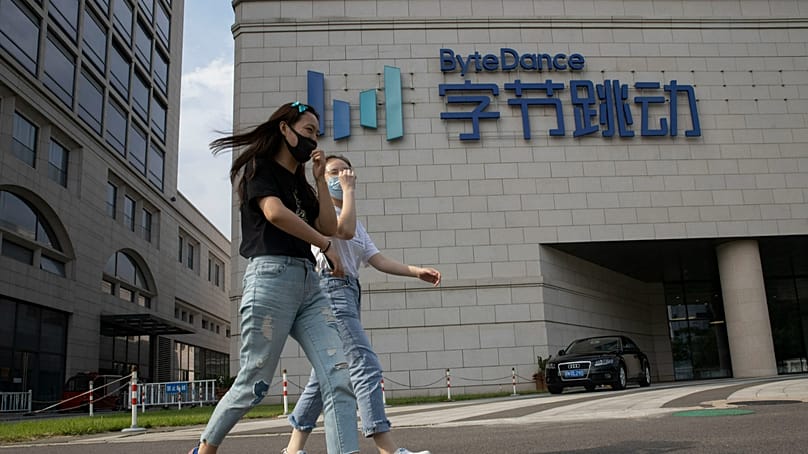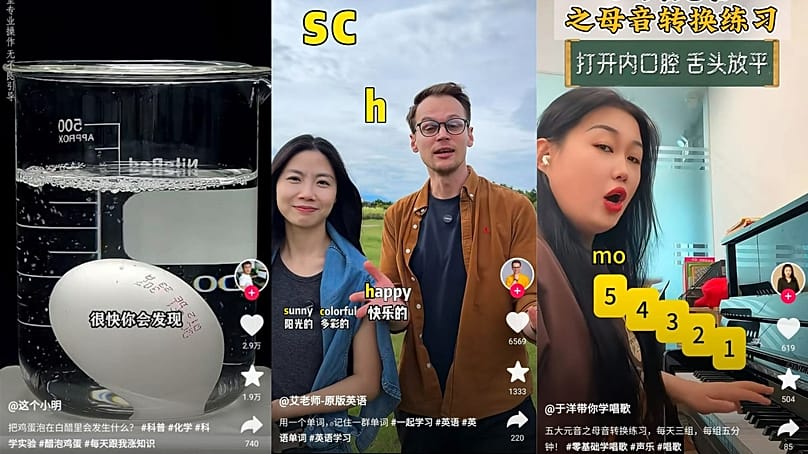Macron recently claimed that China offers its children a more educational version of TikTok, while the version available in Europe is designed, in his view, to dull the minds of young people. The Cube compared the content found in both versions of the app.
French President Emmanuel Macron has suggested that China is offering European children a simple, entertainment-based version of TikTok, while its domestic version is far more educational and beneficial for youngsters.
 ADVERTISEMENT
ADVERTISEMENT
 ADVERTISEMENT
ADVERTISEMENT
Speaking to readers of the regional daily newspaper La Voix du Nord in the north of France on 19 November, Macron took aim at the disparities between the app's Chinese and global offerings.
"Their version of TikTok, because it is a Chinese company, is limited to a set number of hours per day, and the content shown to children is entirely educational," the president said.
He went on to argue that China had "understood that we are in the middle of a cognitive war," adding that its strategy was "to export what dulls young minds, while keeping what makes young people more intelligent for its own population".
Yes, there is a different version of TikTok for the Chinese market
The Chinese version that Macron is referring to is known as Douyin and is developed by Chinese software company ByteDance, which also owns TikTok.
Broadly speaking, Douyin and TikTok share the same logo, structure and digital architecture, but the key difference between the two platforms lies in their audiences.
Douyin was launched in 2016 specifically for the Chinese market, while TikTok took off a year later for international users, offering different types of content to their respective audiences.
China enforces strict censorship across its social media platforms, banning and filtering any content deemed unfavourable to the government or likely to stir political instability.
This is evident in Douyin's own policy terms: they include rules prohibiting content "that distorts and denigrates the nation's fine cultural traditions, as well as any material that harms national sentiments".
Added to this regulation is China's Law on the Protection of Minors, introduced in 2021, which obliges social platforms to implement tools that limit usage for children.
As a result, ByteDance announced a screen-time cap of 40 minutes per day for users under the age of 14, who are also blocked from using the app between 10pm and 6am.
Does Douyin show 'more intelligent' content than TikTok?
To verify whether Macron's claims about Douyin's content for children were accurate, The Cube, Euronews' fact-checking team, used a VPN to download the app and create a 13-year-old user profile.
After scrolling for a few minutes, the platform appeared to offer mostly educational content. It featured videos demonstrating simple experiments, such as a clip showing what happens when you soak an egg in vinegar, as well as lessons in English, music and cooking.
The app's children's mode includes advanced settings that allow parents to specify the types of content they prefer their child to see. These options help the algorithm tailor the recommended feed for users under the age of 14.
The Cube then ran the same test on TikTok. There, its under-14 version seemed to provide content that was more recreational and entertainment-focused than educational, including viral dances and humorous clips, some of which could be described as "brain rot".
However, while TikTok’s main "For You" feed doesn't feature exclusively educational content, many creators, such as @aartemisatworks or @serialthinker, dedicate their accounts entirely to learning.
The app also features a "TikTok for Younger Users" mode, which includes stricter privacy settings, limited screen time and restrictions on commenting, messaging and sharing for 13 to 17-year-old users. However, this mode is only available in the US, and not in Europe.
"However, they are able to experience what TikTok is at its core — showcasing creativity — as they enjoy curated content and experiment with TikTok’s unique, fanciful, and expressive features," the app says on its website.
It's worth noting that, since 2024, TikTok has offered a "STEM feed" — a feed dedicated to science, technology, engineering and maths and designed for teenagers aged 13 and over.
Additionally, when it comes to the "adult mode", both Douyin and TikTok feature similar content, which can be comprised of anything from educational to brain rot-style videos. Douyin, however, still adheres to the general censorship rules imposed by President Xi Jinping’s government.
Is China using TikTok as a tool of soft power?
The idea that China is using TikTok to "dumb down" young people around the world largely originates from a 2022 60 Minutes interview with Tristan Harris, co-founder of the Centre for Humane Technology.
On the programme, Harris described the 40-minute daily screen-time limit as "almost an acknowledgement that technology shapes children".
He backed his claims with a 2019 Harris Poll survey of nearly 3,000 children across the US, UK and China, which asked what they aspired to be when they grew up. In the US, the most popular answer was "influencer", while in China it was "astronaut".
Since then, several political figures have made similar claims, pointing the finger at TikTok and suggesting that the Chinese government could access user data or even spy on states.
In December 2022, Forbes reported that several TikTok employees had tracked journalists using the app's geolocation tools. TikTok admitted wrongdoing and dismissed the staff involved.
The basis for these allegations lies in China's 2017 National Intelligence Law, which requires Chinese companies to cooperate with state intelligence services upon request.
Article 7 of the law states that “any organisation and citizen shall, in accordance with the law, support, provide assistance, and cooperate in national intelligence work, and guard the secrecy of any national intelligence work that they are aware of.”
Technically, this legislation could be applied to Chinese companies operating abroad. Although TikTok’s data servers are based in Ireland and the UK and fall under UK, Irish and EU law, the legislation could, in principle, still extend to the data the platform collects.
Indeed, experts say that the law applies to all Chinese citizens and organisations wherever they are in the world and that they are obliged to assist Chinese investigations when asked.
Since then, the European Commission and the European Parliament have banned the installation of TikTok on staff work devices, a decision introduced in 2023. The Commission said at the time that the measure was intended “to protect institutional data from cybersecurity threats and from actions that could be exploited to mount cyber-attacks against the Commission’s corporate environment.”
This article was updated on 27 November to specify that the “TikTok for Younger Users” mode is only available in the US, and to provide further clarity about China’s National Intelligence Law and the European Commission ban.
















